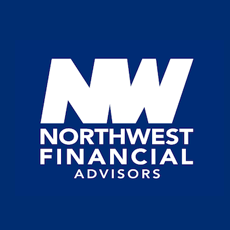How to Retire Your Debt Before Retiring
One of the ways to enjoy a financially comfortable and personally rewarding retirement is to enter retirement free of debt. While it may not be possible to eliminate all debt, significantly reducing your debt before retiring is within reach for many people.
Pay Off Your Credit Cards
Credit cards make purchasing convenient, and some offer valuable rewards that benefit the credit card holder. However, a credit card should be viewed for what it is — a mechanism used to purchase a product or service via an “I Owe You.” It is not a paycheck. Unless you are able to pay off your credit card balance in full every month when your bill is due, a credit card should primarily be used for essential needs such as car maintenance and repairs, online bill payment or health care. Budget how much you can afford to pay on your credit card each month, and allow yourself to charge only that much. That way, you avoid incurring fees on the unpaid balance.
Avoid College Debt
This can be a tricky one. Responsible and caring parents often fret over whether to save for their child’s college education or their retirement, but with proper planning, both can be achieved. Planning well ahead of the education expense is key to the strategy. Section 529 Plans and Coverdell Education Savings Accounts are two tax-advantaged vehicles designed to help parents save for higher education. And remember, scholarships, grants and federal tax credits all help make paying for college affordable without going into major debt.
Don’t Pay Off Your Mortgage
This may seem counterintuitive, but paying off your mortgage early is probably not the smartest financial option available to you. If you’ve purchased or refinanced your home in the last decade, you likely have a low-interest mortgage. It makes more sense to pay off debt with higher interest rates first, such as credit cards, to reduce the risk of further debt accumulation. Paying off your mortgage with cash reserves would leave you without the means to cover unexpected emergencies or to enjoy occasional splurges in retirement, and in many cases, subjects you to early payment penalties. An even less sensible move would be to pull funds from your retirement account to pay off a mortgage, diminishing your nest egg and potential for higher earnings. However, if you can afford it and wish to build your equity, you could pay extra toward your principal on a periodic basis which may lead to an earlier payoff or smaller mortgage at retirement. Just make sure that your mortgage lender does not impose fees on these additional payments.
Avoid Tax Debt
Planning for your taxes is critical to avoid getting into a situation where you can’t pay them and end up owing the IRS and incurring penalties, and thus, more debt. First, make sure you are withholding an appropriate amount of taxes from your paycheck. The IRS offers Paycheck Checkup so that individuals can easily determine their ideal withholding. If you’ve struggled to make tax payments each year, or are getting a much larger refund than you should, it is worth taking advantage of this free calculator.
Debt is just one financial issue to address before you retire. A financial advisor experienced in retirement planning can help you devise a comprehensive strategy to pursue your unique retirement goals and dreams.



